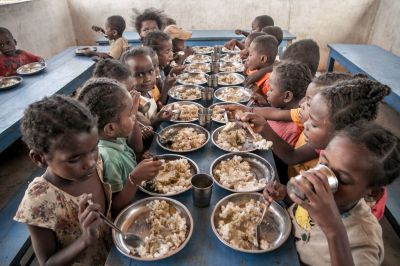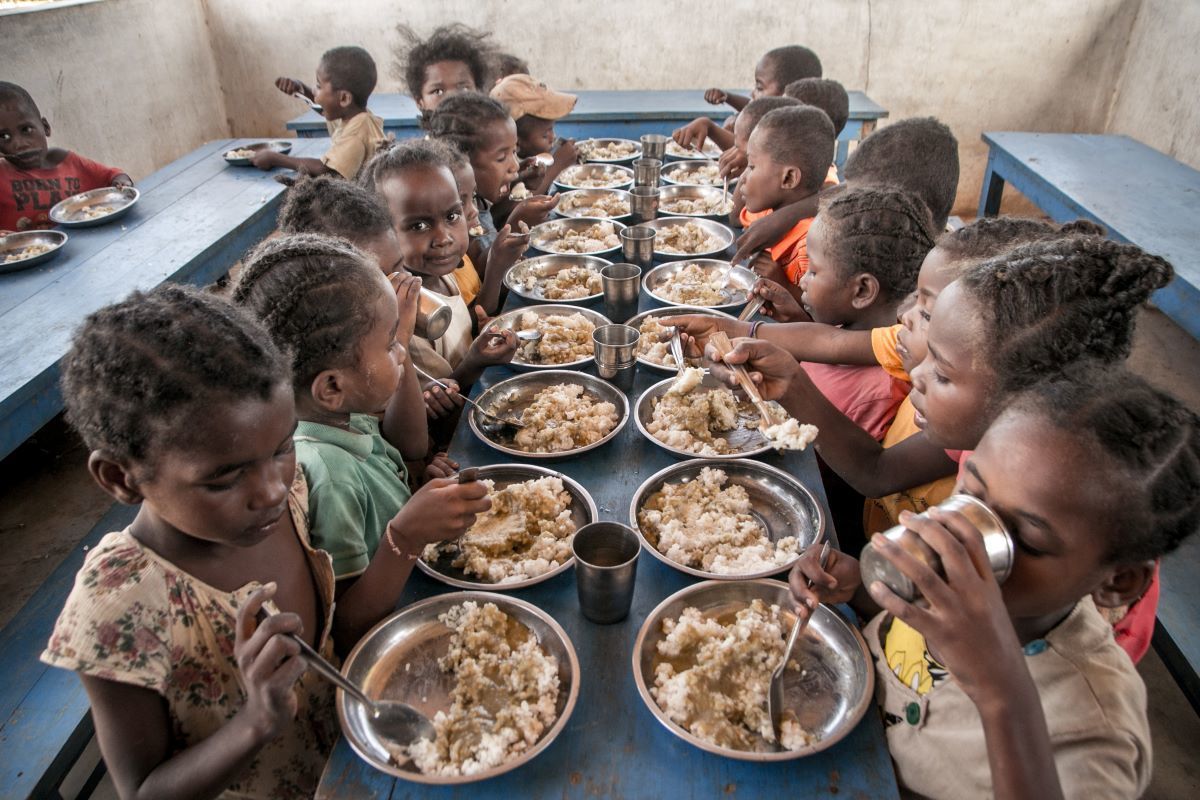
As the new school year approaches, moms and dads are pivoting from picnics to school meal plans for their kids. When my children were younger, I remember my wife going into overdrive to shop for lunchboxes and nutritious food options. We were blessed to have healthy choices for our kids.
But in many communities around the world, parents don’t have the same options for their children. In fact, they’re struggling to put food on the table at all. Right now, more than 800 million people don’t know where their next meal will come from. And children are bearing the brunt of this growing hunger crisis. Over 45 million children suffer from wasting—the most visible, severe, and potentially life-threatening form of malnutrition.
That’s why I want you to know about a way our government helps global organizations like the one I lead, World Vision, to provide school meals for kids who would otherwise go hungry. Our elected officials are working on the Farm Bill, which contains international food aid programs like McGovern-Dole Food for Education and Food for Peace Title II. These Farm Bill programs push back against hunger by ensuring students have at least one daily meal and families have the tools they need to grow their own food and create a livelihood.
Last year in Turkana, Kenya, I saw what it’s like for kids without such a safety net. The region was gripped in the worst drought in 40 years, and many families lost their livestock — their livelihood and food source. Without milk or meat, they subsisted on wild fruit. Visiting a family during a time when school was not in session, I was dismayed to see their elementary-age kids sprawled listlessly on the ground — as any child would do if they hadn’t eaten all day.
I believe that God wants more for these kids — and all His children. And we can be His instruments, enabling girls and boys to flourish and explore their God-given potential.
Just as Jesus fought hunger for thousands of people with a few loaves and fish, we can use a simple but powerful tool: school lunches. This program not only helps combat child hunger, but also empowers girls, transforms communities, and breaks cycles of poverty. How?
The value of a nutritious meal motivates students’ parents to keep sending their kids back to school. This is particularly important for young girls, who are much more likely to be kept home to assist with chores or forced into child marriage. In addition, these programs create a healthy learning environment through the construction of clean water points and new classrooms, benefiting all the kids in the community. For the price of a lunch, we not only ensure children are fed but also on track to finish their education.
Solving world hunger requires more than just feeding people — it also requires empowering communities to feed themselves. When World Vision partners with the U.S. government through an international food aid program, we work to “graduate” whole communities out of extreme poverty and into self-sufficiency. By investing in farmers and buying local produce, these food programs empower communities to feed their own students. That’s how these Farm Bill programs plant the seeds that continue to grow into self-reliant and sustainable food systems.
With just a few small tweaks in the Farm Bill — shifts in commodity requirements and local food procurement — Congress can make the McGovern-Dole and Food for Peace programs even stronger. As global hunger rates continue to climb, it has never been more critical to strengthen these programs that address food insecurity and support self-reliance. More than just a handout, they are a critical investment to save lives, create peace, and build a safer world for all of us.
The decisions Congress makes on the Farm Bill have a real impact on millions of kids around the globe. I encourage parents and people of faith to raise their voices for hungry children by calling on their elected representatives to strengthen international food programs. All kids everywhere deserve the same support our children have to grow up healthy and well-nourished.
Learn more about the Farm Bill and World Vision’s faith-rooted work to end child hunger
Edgar Sandoval Sr. is president of World Vision U.S. Follow him at twitter.com/EdgarSandovalSr.
Free Religious Freedom Updates
Join thousands of others to get the FREEDOM POST newsletter for free, sent twice a week from The Christian Post.




























![[Video] More – Aghogho » GospelHotspot](https://gospelhotspot.net/wp-content/uploads/2024/04/More-Aghogho.jpeg)
















